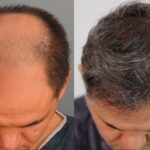Is Migraine curable? What is the best possible treatment for Migraine?
Yes, Migraine is curable, but you cannot get rid of this permanently. Doctors can only try to eliminate the cause of migraine from your life and reduce the attacks. Patients who suffer from migraines undergo a diagnostic process that may include an MRI or a CT scan. When this is complete, the medical professionals will better understand the status of your neurological system and brain vessels.
The treatment depends on your age, severity, type of migraine, symptoms, and health condition. Most medication is designed in two broad categories:
- Pain Relieving Medications
- Preventive Medications
-
Pain-Relieving Medications
This treatment is also known as an abortive treatment. The physicians suggest these medications control the symptoms of migraine and stop the attack. This works best in the early stages of migraine. The following medications can be used to treat it:
Pain Killers or Pain Relievers:
These relievers include the common aspirin, ibuprofen, (Advil, Motrin IB, and others). But long-term, they may cause ulcers and various gastrointestinal diseases. Migraine drugs that include caffeine, aspirin, and acetaminophen (Excedrin Migraine) may be beneficial, although often just for treating mild migraine pain.
Triptans:
Triptans are used to block the pathways of pain in the brain. It majorly includes sumatriptan(Imitrex, Tosyma) and Rizatriptan (Maxalt, Maxalt-MLT). Many of the symptoms of a migraine can be alleviated with the use of these medications, whether as tablets, injections, or nasal sprays. They may not be suitable for persons who are at risk of a heart attack or stroke.
Dihydroergotamine (D.H.E. 45, Migranal)
You can take this drug as a nasal spray or Injection. This medication is the most effective for migraines that tend to continue longer than 24 hours. A side effect may be the worsening of migraine-related vomiting and nausea.
Lasmiditan (Reyvow)
This is an oral tablet that helps to improve headaches. This drug causes a relaxing effect on your nerves. For at least eight hours after taking Lasmiditan, patients should avoid driving or using machinery due to the possibility of sedation and dizziness.
Ubrogepant (Ubrelvy)
This oral calcitonin gene-related peptide receptor antagonist treats individuals with acute migraine with or without aura. It’s the first migraine medicine of its kind. In pharmacological studies, ubrogepant relieves pain and other migraine symptoms like nausea and light sensitivity two hours after taking it. Dry mouth, nausea, and tiredness are common side effects.
Opioid medications
Opioid medication is based on narcotic drugs. This treatment is recommended for those on which other treatments are not effective.
Anti-nausea drugs
These medications are recommended alongside other pain relievers to overcome the side effects of nausea and vomiting.
Certain drugs are contraindicated during pregnancy. It is strongly advised that you visit a physician and should not attempt any treatment without their approval.
2. Preventive Medication
These medicines are suggested to prevent the symptoms and frequent attacks of migraine. This includes the following options:
Blood pressure-lowering medications:
High Blood pressure also triggers migraine. For those individuals, these medications prove to be helpful in preventing migraine. These include beta-blockers, such as propranolol (Inderal, InnoPran XL, others) and metoprolol tartrate (Lopressor). Calcium channel blockers such as verapamil (Verelan).
Antidepressants:
A tricyclic antidepressant (amitriptyline) can prevent migraines. Other antidepressants may be administered as an alternative to amitriptyline due to its side effects, such as drowsiness.
Anti-seizure drugs
These drugs are mostly used to reduce epilepsy seizure but also proves to be helpful in case of migraine. This includes valproate and topiramate (Topamax, Qudexy XR, and others). They may help but they can also produce side effects like dizziness, weight fluctuations, nausea, and more. Pregnant women or trying to conceive should avoid taking these drugs.
Alternative medicine
Some nontraditional medicines help to cure migraine.
Acupuncture
According to clinical investigations, acupuncture may be beneficial for headache pain. In this therapy, the practitioner inserts a large number of thin, disposable needles at specific spots into multiple parts of your skin.
Biofeedback
Migraine sufferers may find relief through biofeedback. This stress-relieving therapy evaluates muscle tension and manages it by utilizing specialized technology.
Takeaway
Most migraines go unreported and untreated. People are not fully informed about its symptoms and treatment. Migraine is a genetic disease that causes due to various factors. According to research, hereditary and environmental factors contribute to the genetic complexity leading to migraines. There is a variety of treatments that help to prevent and cure the attacks of migraine. We have discussed all the effective and genuine treatments in this article. Please let us know if you find this helpful.








